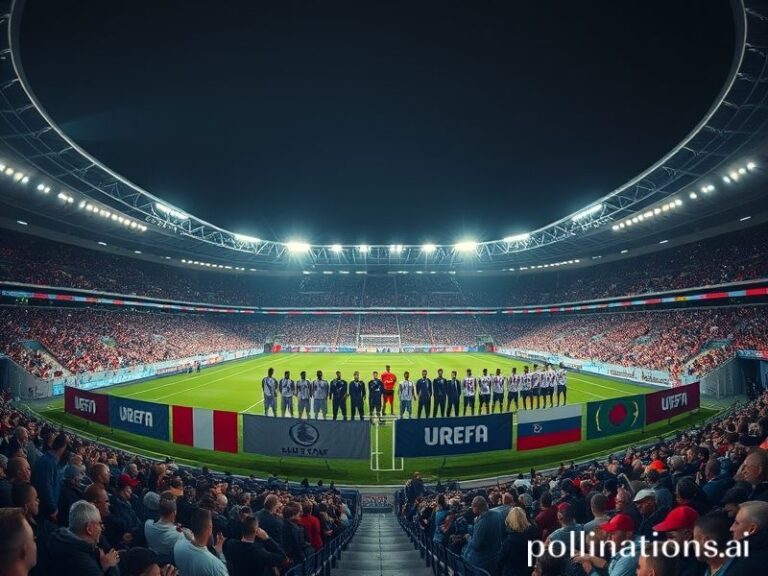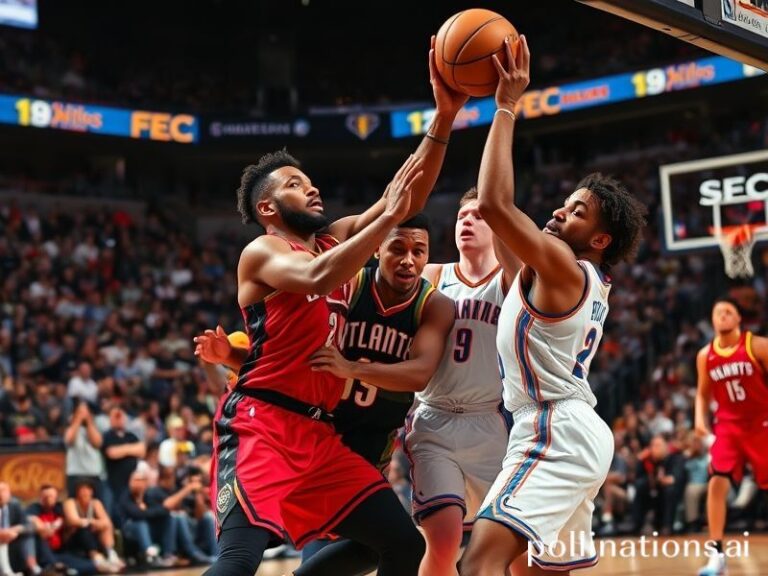Utah State Football: How a Forgotten College Team Became the World’s Most Honest Geopolitical Satire
The Utah State Aggies, a football program whose greatest victories usually involve convincing 18-year-olds that Logan in February is “quaint,” have improbably become a geopolitical weather vane. From the vantage point of a barstool in Sarajevo—where the local side has been relegated so often it should qualify for EU development funds—the Aggies’ 2023 season offers a darkly comic masterclass in how a mid-tier American college team can reflect the entire planet’s talent for spectacular self-sabotage.
Let’s begin with the roster, a UN General Assembly of hurtling adolescents. There’s a quarterback from Samoa who learned to read defenses by dodging Australian mining trucks, a cornerback from Lagos whose 4.3 speed was honed outrunning Lagos traffic (statistically deadlier than most SEC secondaries), and a kicker from Moldova who claims his leg strength comes from years of punting expired borscht across the Dniester. Utah State’s coaching staff, meanwhile, could be mistaken for a sanctions-compliance seminar: one analyst moonlights advising hedge funds on how to exploit loopholes in the CHIPS Act, another runs a discreet consultancy helping European energy firms launder—sorry, “optimize”—carbon credits. The Aggies, in short, have gone multinational, proving that even a land-grant university in the high desert can cosplay as a Swiss trading house.
This cosmopolitanism is charming until you remember the Aggies play in the Mountain West, a conference whose television deal is so anemic it could be prescribed for anemia. The global audience for Utah State–San José State peaks somewhere between a Liechtenstein tax-haven hearing and a TikTok livestream of a Slovenian beekeeper. Yet the program’s marginality is precisely its value: in an era when the Big Ten is adding Los Angeles schools like a hedge fund scooping up distressed condos, Utah State remains an ungoverned space, a sort of Galápagos of amateurism where Darwinian weirdness still flourishes. Their 2023 upset of Iowa—accomplished while half the Hawkeyes were presumably calculating NIL cash in real time—was less a football game than a morality play about the dangers of over-monetization. Somewhere in the C-suite of a Saudi sovereign-wealth fund, an intern bookmarked the game film under “due diligence.”
One cannot discuss the Aggies without mentioning the Spectrum, their basketball arena that moonlights as a football metaphor—loud, claustrophobic, and statistically likely to induce existential dread in visiting teams. The international press corps, when it bothers to notice, loves to contrast the Spectrum’s decibel levels with the eerie silence of European mega-stadia built atop Chinese steel and Qatari guilt. The Aggies’ fans, armed with nothing more lethal than fry sauce and generational trauma, achieve the same acoustic warfare as Borussia Dortmund’s Yellow Wall, minus the flares and post-industrial nihilism. It’s enough to make a war correspondent nostalgic for simpler forms of tribalism.
Off the field, Utah State’s relevance grows darker. When the Pac-12 imploded last summer, the Aggies briefly flirted with realignment, only to discover their brand equity ranked somewhere below Mongolian throat-singing on ESPN’s Q-score chart. Athletic director Diana Sabau—whose surname sounds like a failed Balkan cryptocurrency—publicly blamed “market inefficiencies,” which is executive-speak for “nobody wants us.” Watching her navigate conference realignment was like observing a UN peacekeeping mission negotiate safe passage for a food truck. The whole spectacle confirmed what every jaded diplomat already knows: in the 21st century, even sport is just another theater for great-power pettiness.
And yet, cynicism has its limits. When the Aggies beat Colorado State in the “Border War,” a game whose trophy is an old wagon named for a 19th-century settler who probably committed genocide, international viewers glimpsed something pure: teenagers crying over a glorified piece of firewood. It was a reminder that while oligarchs weaponize football for geopolitics, the sport’s last uncommodified drops still taste like tears and cheap beer. In a world busy monetizing oxygen, Utah State’s stubborn irrelevance feels almost noble—like finding a functioning payphone in Mariupol.
So raise a glass (of 3.2% beer, because Utah) to the Aggies: proof that in the global circus, even the sideshow can upstage the main act—provided no one’s watching too closely.







